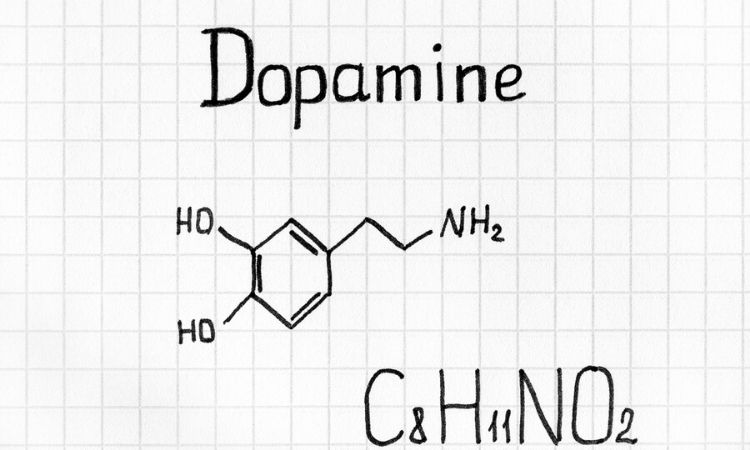
Dopamine is an essential chemical messenger in the brain. When dopamine is released, it induces feelings of reward and pleasure. This motivates a person to repeat a particular behavior.
Conversely, low levels of dopamine are associated with decreased motivation and excitement for things that would be pleasurable for other people. For those in recovery from addiction, the ability to produce dopamine is essential to improve mood and prevent a return to substance abuse as a means to experience pleasure.
Drug and alcohol abuse, over time, hijacks the brain’s reward system. As the brain adapts to the presence of the substance, it becomes less able to produce dopamine, serotonin, and other essential neurotransmitters without chemical help.
Activities That Increase Dopamine Levels Naturally
People in recovery sometimes struggle to experience pleasure. Fortunately, there are everyday options available to increase levels naturally, including the following:
Eat Protein
Proteins consist of nearly two dozen different amino acids. The body can produce some, but others must be obtained by eating food. The amino acid tyrosine plays a crucial role in the production of dopamine.
Furthermore, the body can convert another amino acid, phylalanine, into tyrosine. Both tyrosine and phenylalanine are found in high protein foods. These include beef, eggs, turkey, chicken, dairy, soy, and legumes.
Research has shown that boosting the amount of tyrosine and phenylalanine in the diet can increase the amount of dopamine in the brain. Dopamine can improve cognitive abilities and memory.
Avoid Saturated Fat
Some research on animals has found that saturated fats may disrupt dopamine signaling in the brain when consumed in excessive amounts. Such bad fats can be found in animal fat, butter, dairy, lard, and palm and coconut oil, among others.
One study revealed that rats that consumed half of their calories from saturated fat had less dopamine signaling in the reward regions of the brain, compared to those that received the same amount of calories from unsaturated fat. Why saturated fat affects dopamine adversely is not entirely clear. Still, many researchers contend that eating a diet high in saturated fat may cause inflammation in the body.

Take Probiotics
In recent years, researchers have found that the brain and the gut have a close connection. In fact, the gut has oft been referred to as the “second brain.” This is because it contains many nerve cells that produce neurotransmitters, including dopamine.
Some species of bacteria that live in the gut are capable of producing dopamine for us. Several studies have found that when consumed in large enough amounts, specific strains of bacteria can reduce symptoms of depression and anxiety in both humans and animals.
Exercise Regularly
Exercise is a great way to increase endorphin levels and elevate mood. Improvements in mood may occur after just a few minutes of aerobic activity. Although results tend to be highest after 20 minutes or more.
Although these effects are probably not solely due to increased dopamine levels, research on rats suggests that exercise can increase the amount of dopamine in the brain. In humans, one three-month study found that performing yoga for one hour six days a week increased dopamine levels significantly.
Several studies have revealed that regular, intense exercise several times per week significantly improved motor control in individuals with Parkinson’s. This finding suggests that there may be a positive effect on the production of dopamine, as those with the disease are usually deficient.
Get Plenty of Sleep
When the brain releases dopamine, this action induces feelings of wakefulness and alertness. Animal research has found that dopamine is release in high levels upon waking. Conversely, levels fall when it’s time to go to sleep, as part of our Circadian Rhythm.
Moreover, a lack of sleep appears to interrupt these natural rhythms. When a person must stay awake through the night, the availability of dopamine in the brain is significantly lower by the next morning.
The National Sleep Foundation recommends getting 7–9 hours of sleep each night for optimal health. One way to achieve this is through proper sleep hygiene. A person can improve sleep hygiene by falling asleep and waking up at the same time each day, for example. Other ways to improve sleep quality is avoiding caffeine late in the day, reducing noise in the environment, and limiting bed use to sleep only.
Listen to Music
Listening to music can be an enjoyable way to spur dopamine release in the brain. Studies have found that listening to music boosts activity in the pleasure and reward regions of the brain. These regions contain numerous dopamine receptors.
One small study examining the effects of music on dopamine levels found a 9% increase when people listened to instrumental music that gave them chills. In fact, all research to date on music and dopamine have used only instrumental songs to ensure that melodies alone can increase dopamine levels.

Practice Medication
Meditation is a method of clearing the mind, focusing inward, and letting thoughts pass by without judgment. Regular practice has been associated with improved mental and physical well-being. In fact, recent studies have found that meditation may increase dopamine levels in the brain. In a small study of eight experienced meditation instructors, researchers found a 64% increase in the participants dopamine levels after one hour of meditation.
These changes may help people who meditate keep a positive mood and motivate them to stay in the meditative state for a prolonged period.
Consider Taking Supplements
The human body requires many vitamins and minerals to produce dopamine. These include folate, iron, niacin, and vitamin B6. If a person is deficient in even one of these nutrients, they may have difficulty producing enough dopamine. Blood work can help determine nutrient deficiencies. If a person is deficient, supplements can increase levels.
Getting Help for Addiction
Recovery By The Sea offers comprehensive addiction programs that are founded on the concept of holistic treatment. By using a holistic approach, clients can benefit from a variety of therapeutic services, activities, and educational classes. Studies have shown that such programs are the most effective at helping people achieve the best outcomes of long-lasting sobriety and wellness.
If you ready to begin your journey to recovery, contact us today. Discover how we can help you get started—one step at a time!